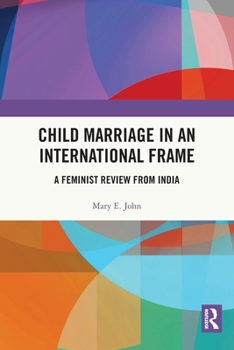Child Marriage in an International Frame: A Feminist Review from India
Select Format
Select Condition 
Book Overview
Child marriage has been given a pre-eminent place in agendas addressing "harmful practices" as defined by the United Nations Sustainable Development Goals. India leads the world in the number of women who marry below the age of 18 and is therefore of unique interest to international and national forums.
Refusing simplistic labels like "harmful practice", this book explores the complex history of child marriage as a social and feminist issue in India across different domains. It critically reviews a wide range of historical, demographic, and legal scholarship on the subject. Major concepts relevant to child marriage - such as childhood, adolescence, the girl, and marriage - are analysed in a comparative framework that uncovers the unnoticed presence of the practice in the USA and China. The volume questions existing approaches, analyses the latest data sources, and develops a new concept of compulsory marriage.
A definitive study of child marriage in India in a changing global context, this book will interest scholars and students in the fields of women's, gender and sexuality studies, childhood studies, development studies and the social sciences. It will also be of great appeal to all those working with civil society organisations, NGOs, states and international agencies in India, and globally.





